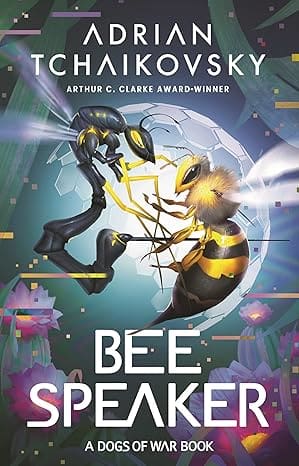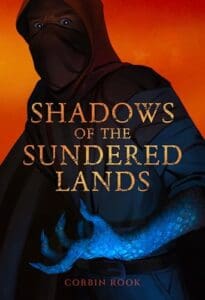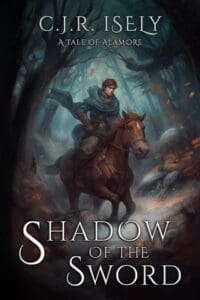
Synopsis:
From the Arthur C. Clarke award winner, Adrian Tchaikovsky, comes the third instalment of the DOGS OF WAR science fiction series, a future where genetically engineered “Bioforms” have inherited not the Earth, but the Solar System.
The end of the world has been and gone.
There was no one great natural disaster, no all-consuming world war, no catastrophic pandemic. Rather scores of storms, droughts and floods; dozens of vicious, selfish regional conflicts that only destroyed what could no longer be rebuilt. No single finishing stroke for Earth’s great global human society, but you can still bleed to death from a thousand cuts.
The Red Planet fared better. Where Earth fell apart, Mars pulled together. Engineered men and beasts, aided by Bees, an outlawed distributed intelligence, survived through co-operation, because there was simply no alternative.
Fast forward to the present day. A signal – “For the sake of what once was. We beg you. Help.” – reaches Mars.
How could they not help? A consortium of Martian work crews gather the resources for a triumphal return to the blue-green world of their ancestors.
And now here they are – three hundred million kilometres from home.
And it has all already gone horribly wrong.
Review:
I hate bees, but man do I love Bees.
For the third installment in his Dogs of War series, Adrian Tchaikovsky focuses on the distributed intelligence known as Bees, which is about time for me. In a lot of ways, Bees was perhaps the most interesting part of the original work in the series.
The first book, Dogs of War, was released in 2017 and featured the main storyline with Rex, a dog bioform who is the leader of a motley crew of animal bioforms — himself, Honey (a bear bioform), Dragon (a reptile), and Bees (literally just bees). The first novel was set near-future and explored what it means to be human and if the consciousness’ of bioforms entitles them to the same rights as “mankind.”
In 2021, Tchaikovsky released Bear Head, featuring Honey. The Mars setting for a lot of it gives it a bit of a Total Recall vibe and the story features a lot into media personalities and free will. Honey plays a key part in the book, but is by no means the main character. Bees plays a key role as well…on Mars as one of the early colonizers and also back on Earth as they have split their intelligence.
I liked, but didn’t really love the first two books. Rex is and forever will be a Good Boy, and I really like Honey the Bear, but in both books it was just hard for me to put myself in their shoes (maybe cuz dogs and bears don’t wear shoes?) but in the end, it actually was easier at times to empathize with the bioforms (the animals) than with the humans (especially Thompson from Bear Head). There is a lot to like and I’m glad I read them, but I just didn’t resonate with those books. Not like I did with Bee Speaker.
No one can accuse Adrian Tchaikovsky of not being imaginative. Each book in this series is so wildly different from the others in terms of tone and setting and he makes even the hardest of sci-fi concepts so digestible. It would have been so easy for him to set this book on Mars after the events of Bear Head and invent some reason why Bees has to be the hero of the day.
Instead, in Bee Speaker we return to Earth…a planet which has lost control of itself and its technology. All that happened in the days of Rex, Honey, Dragon, and Bees is the Old time. The people of Earth have devolved into a neo-feudalistic society of sorts. Bees is revered as a type of God among some — an invisible deity capable of great works, but before their time. Other people form up in abandoned bunkers, quasi-manors with a medieval hierarchy at play. And lastly, the remnants of the Old time, the Dog Factory where bioforms are still produced and some of the last vestiges of technology is still utilized.
Dropped into the middle of all of that are four Martians, returning to Earth after getting a signal from the Earth Bees. Of course, it’s a Tchaikovsky book and things do not go swimmingly for our intrepid adventurers on their return to their ancestral planet.
One of the things I loved about this book was two opposing views of what the future may bring. On Earth, disinformation and politics killed society as they knew it and the little technology humans had in Bee Speaker was often beyond their comprehension. Mars, on the other hand, almost collapsed from some of the same factors in Bear Head, but was saved by Bees and Honey and went on to be more of a communal civilization where everyone worked together and pushed technology onward and forward. Those two sides of the knife’s edge were on full display throughout this Bee Speaker. In the end, just like in Bear Head, the subject of the book — Bees — isn’t our main character, but instead acts as more of the MacGuffin towards the final quarter of the novel.
In the end, it may be a fairly simple novel in its story, but Bee Speaker is a great addition to the Dogs of War series, introducing some memorable characters and pushing the bounds of what it actually means to be “human.”
Thank you to Head of Zeus for providing this book for review consideration via NetGalley. All opinions are my own.










Leave a Reply